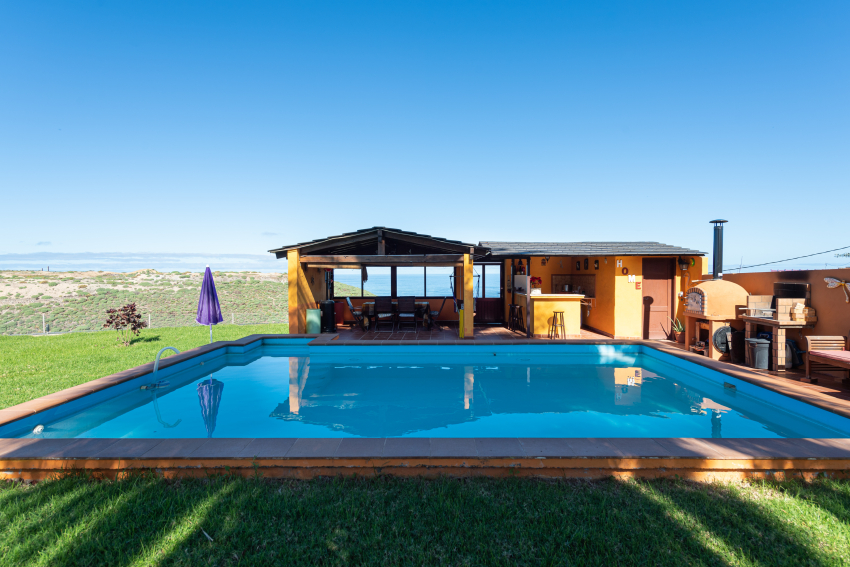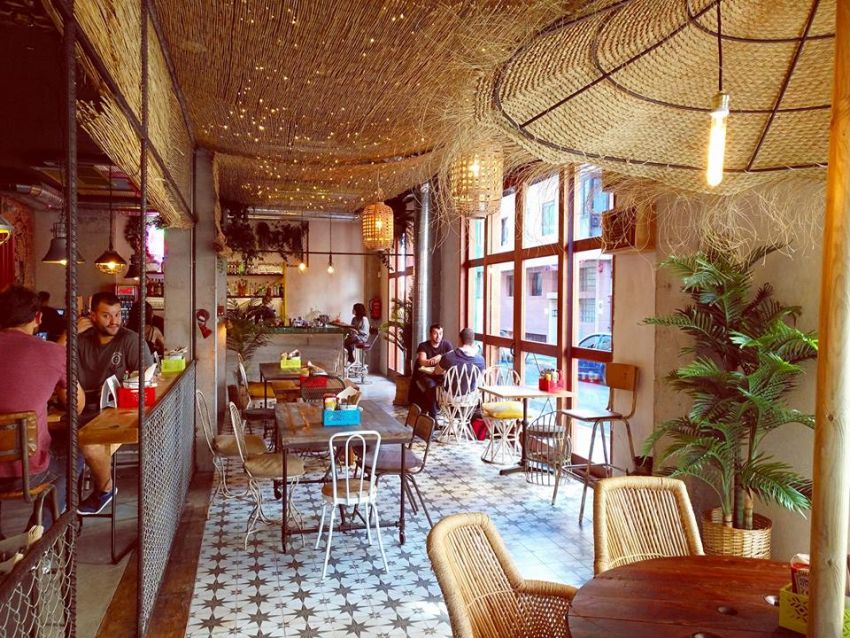Living In Gran Canaria: Guide To Buying A Property
Buying property in Gran Canaria is a relatively straightforward process if done correctly. The island property registry is excellent, property rights in Gran Canaria are clear, and all contracts must be signed in front of an independent notary.
However, there are pitfalls and we advise all buyers to use a quality estate agent and / or a local lawyer to check their chosen property and contracts.
Laura Says: Estate agent services are free for property buyers as the commission is paid by the seller. Take advantage and find a good one to help you buy your Gran Canaria property
Estate agents in Gran Canaria
Estate agents in Gran Canaria vary from the average to the excellent with a couple of outlying dodgy outfits (targeting non-resident buyers in the resorts). Check reviews carefully before choosing an agent.
Estate agency fees are 5% of the sale price of a property but are paid by the seller. This means that their services are free to buyers; All non-native Spanish speakers should use one when buying property in Gran Canaria.
The risks of going it alone are just too high to bother with as disputes takes a long time and oodles of cash to resolve.
To find a good estate agent in Gran Canaria, look for the following…
- An estate agency with an office you can visit and a good local reputation
- An agency that works within the local agency ssystem and shares commissions with other agents
- An agent that speaks your language and good Spanish
- Above all, choose an estate agent that cares about you, rather than about selling you a particular property
The benefit using a good estate agency include their ability to value a property accurately (many sellers list their property at the price they’d like to get rather than what it is currently worth), the help they provide with paperwork, and good relationships with reliable local banks.
In Las Palmas and the north of Gran Canaria, the Las Palmas Property website is packed with useful information.
In south Gran Canaria, just go to Cardenas Real Estate; One of Gran Canaria’s oldest and most trusted agencies. The Cárdenas blog is an excellent source of quality local information.
Laura Says: Do not buy a rental investment property in south Gran Canaria without getting expert advice from a good estate agent or lawyer. Holiday let rules are complex.
The cost of buying property in Gran Canaria
The total cost of buying a property in Gran Canaria is roughly 10% on top of the price you pay.
This sum includes:
- Fixed property purchase tax (the exact percentage varies depending on property type and Municipality)
- Notary costs (a fixed percentage of the value of the property)roperty registry costs.
- Property registry costs.
The 10% figure is approximate. It can be up to 12% if you buy a cheapie under €100,000 and lower if you buy something substantial.
Laura Says: Seek expert advice if a seller wants you to pay a percentage of the purchase price in cash under the table. This is illegal and has tax implications as the government knows what property is worth and asks for extra taxes on properties that are bought too cheap. You could end up with a huge tax bill up to four years after you buy a property.
Ongoing costs include:
- Monthly Communidad fees (if you buy in a building or complex)
- A small annual tax on the value of the land your property sits on (known as the IBI)
- Utility bills
- There are no council tax bills in Gran Canaria but some municipios, such as Mogán, charge for rubbish collection
What you need to buy a property in Gran Canaria
All buyers must have:
A Spanish NIE number; This fiscal identification number, which you will soon learn by heart, is the same number that goes on your green Residencia paper. Getting a NIE is a faff unless you have a job contract or a pre-contract to buy a property (or are a non-EU citizen investing 500,000 euros in Spanish property; Hello Golden Visa).
A local bank account; Opening a non-resident bank account can be a faf. It's best to wait until you have your NIE and then you'll have no problem.
British and other non-EU/ EEA buyers may need a military authorisation if buying a rural property. This is a formality but can take time so start the application early.
Getting a mortgage in Gran Canaria
Spanish banks learned their lesson rather too well during the crisis and are now cautious about lending money to home buyers. Residents need between 10% and 20% of the sale price as a deposit and a work contract to even be considered (or a long track record of earnings as an Autonomo or self-employed person).
New arrivals often have to wait a year to get a mortgage, even with a permanent work contract. This might seem infuriating, but it’s no bad thing if you consider the number of people who go home after a year in Gran Canaria; not everyone can handle the sunshine and the rum.
Spanish banks currently won’t lend you more than you can pay back with a third of your total income.
Non-residents need a larger deposit (typically 30%) and proof of earnings in their home country going back six months. Spanish banks are unwilling to lend to older non-residents who are due to retire before their mortgage term is up.
Mortgage applications are long-winded (up to three months at some banks) and hampered by top-down management at Spanish banks. Your application is submitted in Gran Canaria but goes to headquarters (always in Madrid) for approval. Any missing documents cause delays that nobody is accountable for. Be vigilant and don’t be afraid to push as silence is often a sign that something needs to be done.
The best advice we can give you is to apply to several different banks; They all require the same paperwork so all you have to do is spend a few hours at each one and feed them with photocopies.
Apply to at least one big local bank such as Santander, BBVA or Bankia, a modern bank such as ING Direct, and a specialist mortgage provider such as UCI (which works exclusively with estate agency clients).
Article written with information from Laura Leyshon of Las Palmas Property.
Gran Canaria Info recommends:
- Default
- Title
- Date
- Random













